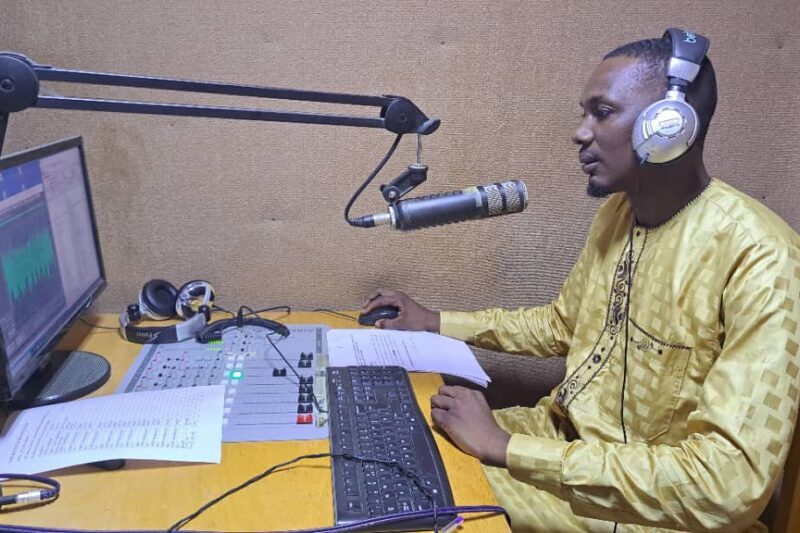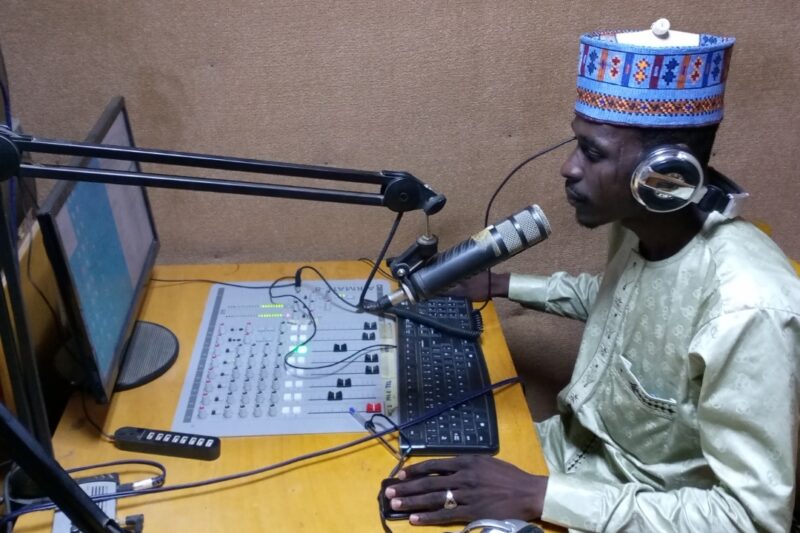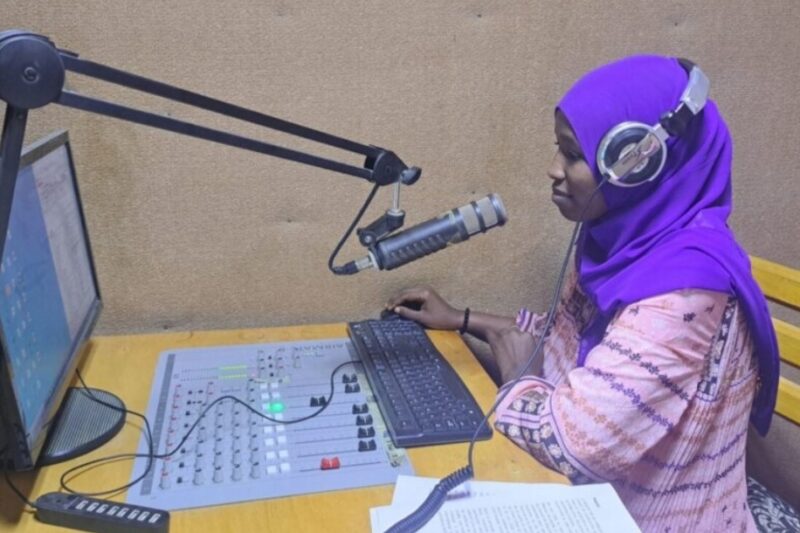As the Lake Chad Basin Governors’ Forum takes place in N’Djamena, Radio Ndarason asked its listeners what they would say to the governors if they were invited to the forum, Some listeners let loose.
By Oumar Yana
From Monday to Friday, Radio Ndarason, the radio station that gives a voice to the people of the Lake in their own languages, opens its airwaves to its listeners to hear their concerns.
On Wednesday, a programme hosted by journalist Oumar Yana in the Kanuri language, elicited several calls from listeners, particularly refugees and displaced persons.
Listeners discussed the details of difficult daily lives and food needs, and several displaced people said they were fed up with the life they lead in the camps and pleaded for a return to their homes.
One woman, Achta Abakar Gana, dwelt on the difficult conditions of the displaced and refugee populations. In her opinion, many humanitarian organizations have ceased their operations for lack of funds. “We don’t want to be fed all the time. The governors have to make arrangements for our return home or provide us with work”.
Abdoulaye Mbodoumi, another listener, also pleaded for the definitive return of refugees and IDPs, but also for better coordination of humanitarian aid: “If I was invited to the governors’ forum, I would suggest a resolution for the coordination of action by humanitarian NGOs, because if everyone intervenes on their own, it doesn’t help the refugees”, he insisted.
Aicha Hussein, a Radio Ndarason listener, defended the idea of setting up a humanitarian plan in each refugee and displaced persons site. “I strongly urge that humanitarian provision be put in place for sites within the Lake Chad Basin countries”.
At the Forum itself most of Wednesday’s interventions focused on improving humanitarian interventions in favour of refugees and displaced persons following the actions of Jamāʿat Ahl al-Sunnah li-l-Daʿawah wa al-Jihād (JAS, more commonly known as Boko Haram).
The listeners hope that the governors and participants “will take resolutions that address their concerns, including a return to their homes.”







